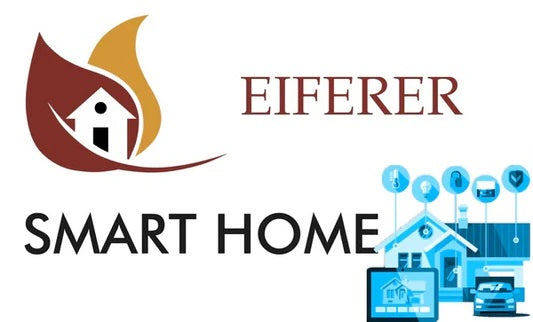The smart home industry in South Africa has seen significant growth over the last few years, with technology continuing to advance.
“These upgrades not only enhance the living experience but also offer opportunities for improved energy efficiency and cost savings,” says Claude McKirby from Lew Geffen Sotheby’s International Realty.
“However, with the plethora of options available, it’s important to evaluate which smart home upgrades are worth the cost and which may be overrated, especially if one is on a budget,
“There is already a wide range of options available and, with new technology becoming available all the time, it can be very overwhelming, even for tech-savvy.”
For those looking for a budget-friendly smart home upgrade, McKirby said that smart plugs are affordable and versatile, allowing homeowners to transform their electrical outlet into a smart outlet. These plugs are controlled remotely and allow for the automated control of devices, which offers convenience and energy-saving potential.
He added that upgrading to smart LED bulbs or smart lighting systems can also offer energy efficiency.
Smart power strips can also help eliminate ‘vampire power’ by cutting power to all devices on standby mode. These can be controlled remotely, scheduled, or even configured to turn off when a device is not on.
The technology starts getting more advanced when it comes to smart home upgrades that come with a cost.
For instance, smart security systems, such as cameras, doorbell cameras, and smart locks, enhance home security by allowing homeowners to monitor their property from anywhere.
A smart home hub acts as a central command for the house’s smart devices, allowing the homeowners to control several devices with a single interface and enhance the overall experience.
For homeowners with a big budget and who want all the bells and whistles, smart appliances, such as refrigerators, washing machines, or dishwashers, offer more luxury than necessity, according to McKirby.
Advanced energy solutions can also optimise the house’s energy consumption, monitor user patterns, identify energy hogs, and optimise efficiency.
Whole-home automation is also an option for homeowners with larger budgets, which integrates all the home’s various smart devices into one cohesive and customisable network, tailoring the homeowner’s specific needs.
Not always necessary
Despite smart home technology’s continued evolution, some upgrades are not necessary, according to McKirby.
For instance, smart refrigerators do not offer significant benefits considering their cost and are more of a necessary luxury – the same applies to smart blinds.
In addition, smart toilets with heated seats, built-in bidets, and motion-activated lids may provide a luxurious experience but require complex maintenance. Standard toilets are reliable and cost-effective, with different products, like bidet attachments, available on the market.
Smart pet feeders may also claim to differ in convenience as they allow owners to schedule their pet’s feeding, but they may have connectivity issues and prove unreliable. Many traditional pet feeders have automatic features that can achieve the same tasks for a fraction of the cost.
Outlook
Regarding the future of smart home innovations, McKirby said that AI-powered virtual assistants, like Amazon’s Alexa, will become more contextually aware, allowing for initial and intuitive interactions – learning to make suggestions for the homeowner.
Augmented Reality (AR) integration will also allow homeowners to virtually experiment with furniture and room layout choices, whilst advancements in Virtual Reality (VR) will allow proper to virtually tour homes, test out smart home devices, or even control devices remotely.
Further enhanced security measures, such as encryption protocols, biometric authentication, and enhanced cybersecurity measures, will ensure the homeowner’s safety.
“Smart home upgrades provide homeowners with opportunities to enhance their living experience, improve energy efficiency, and increase convenience.
“Ultimately, the value of smart home upgrades lies in aligning the features with individual needs, preferences, and budget constraints to create a home that is not only technologically advanced but also tailored to the homeowner’s unique requirements,” concludes McKirby.

